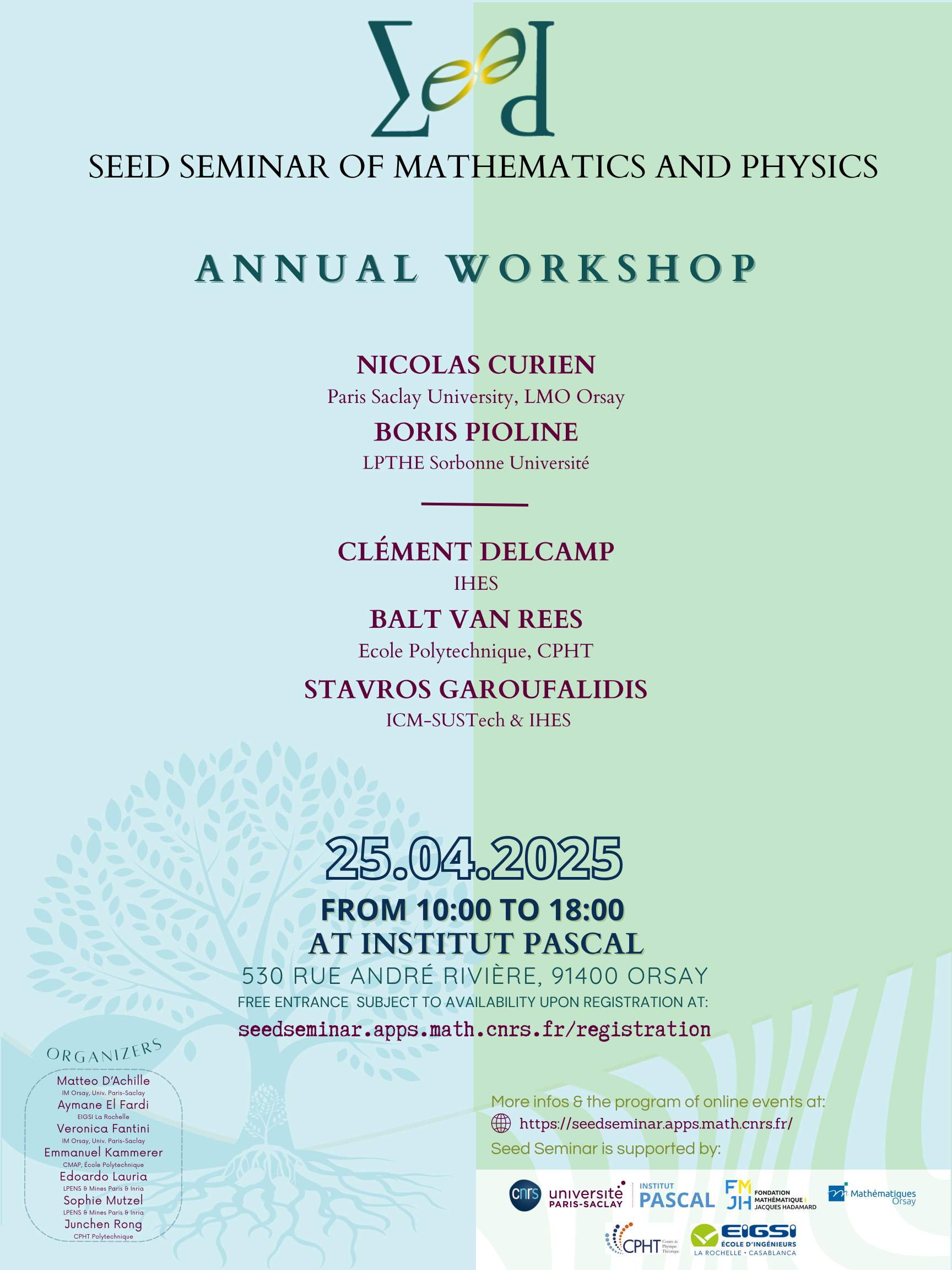Annual workshop of the Seed seminar
→
Europe/Paris
Small Amphitheater + central hall (Institut Pascal )
Small Amphitheater + central hall
Institut Pascal
530 rue André Rivière 91400 Orsay
Description
The Seed seminar of mathematics and physics is a seminar series that aims to foster interactions between mathematicians and theoretical physicists, especially among young researchers. It is structured into three-month thematic periods.
We organize an in-person workshop at the Institut Pascal resuming the trimesters of this academic year with contributions from Nicolas Curien, Boris Pioline, Clément Delcamp, Balt van Rees and Stavros Garoufalidis.
Registration for attending the event in person is free but mandatory, see Registration in the indico menu.
If you cannot attend the event in person but are interested in following the talks online, please subscribe here to the Seed seminar mailing list, on which Zoom links will be shared for this event and future ones.

- Matteo D’Achille (Institut de Mathématiques d’Orsay, Université Paris-Saclay, France)
- Aymane El Fardi (École d’ingénieurs en génie des systèmes industriels (EIGSI) - La Rochelle, France)
- Veronica Fantini (Institut de Mathématiques d’Orsay, Université Paris-Saclay, France)
- Emmanuel Kammerer (Centre de Mathématiques Appliquées, École Polytechnique, Palaiseau, France)
- Edoardo Lauria (Laboratoire de Physique de l’École Normale Supérieure, and CAS, Mines Paris - Université PSL, Paris, France)
- Sophie Mutzel (Laboratoire de Physique de l’École Normale Supérieure, and CAS, Mines Paris - Université PSL, Paris, France)
- Junchen Rong (Centre de Physique Théorique, École Polytechnique, France)
Matteo D’ACHILLE
Inscription
Annual workshop of Seed seminar registration
